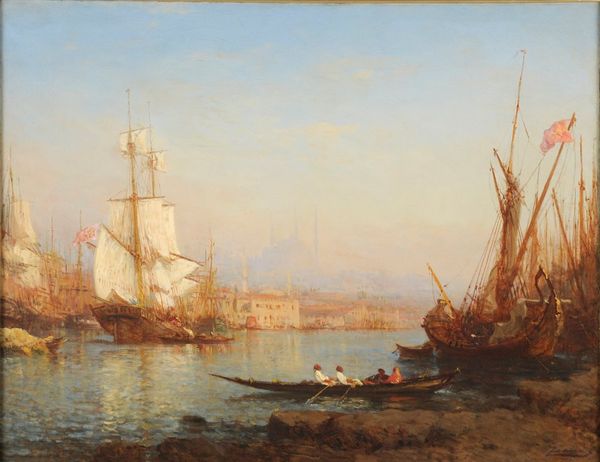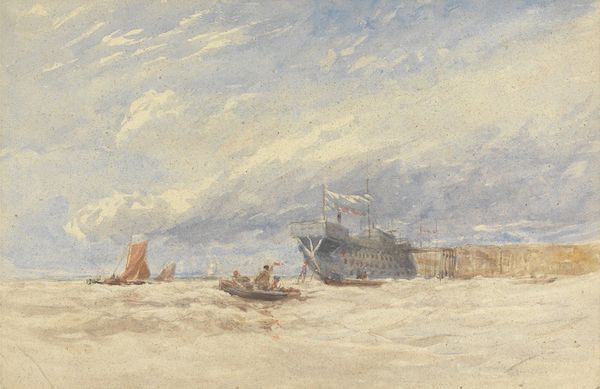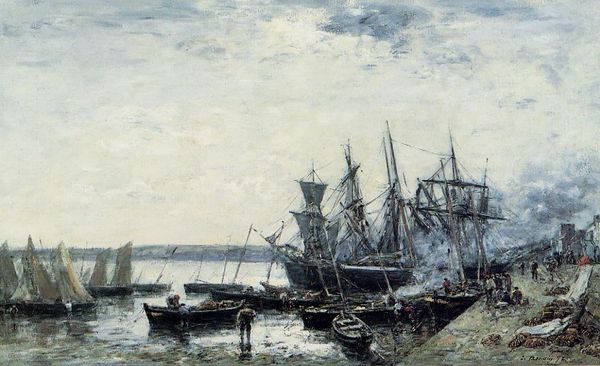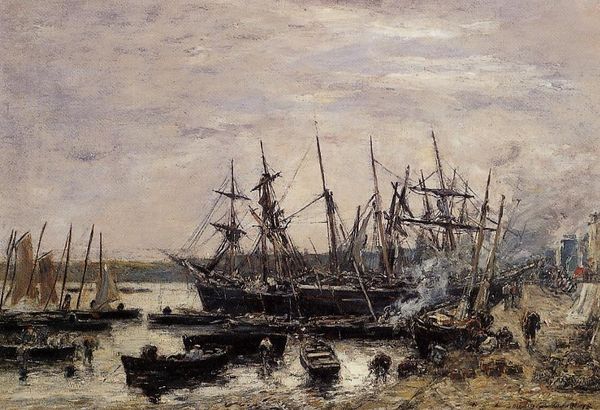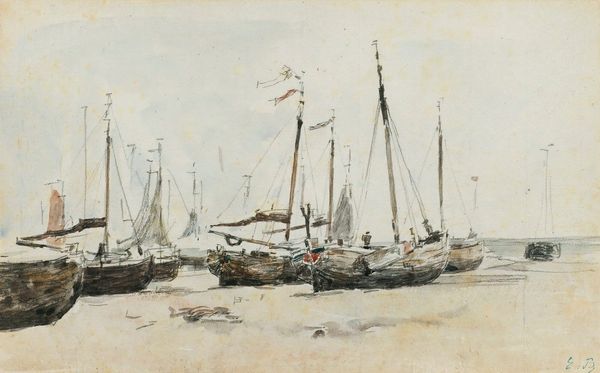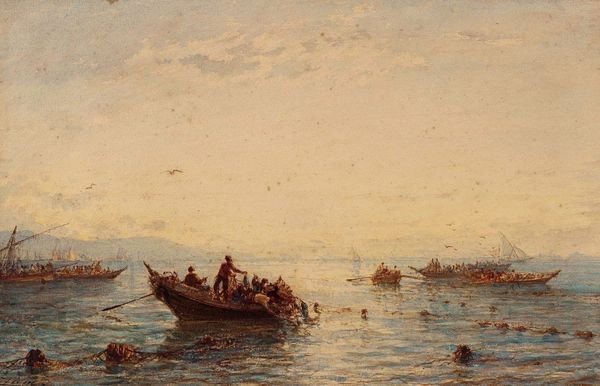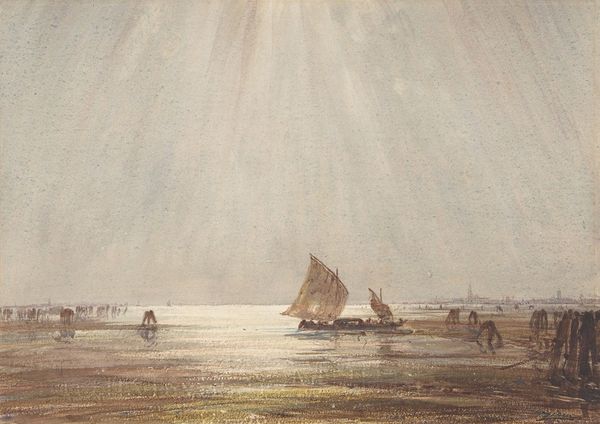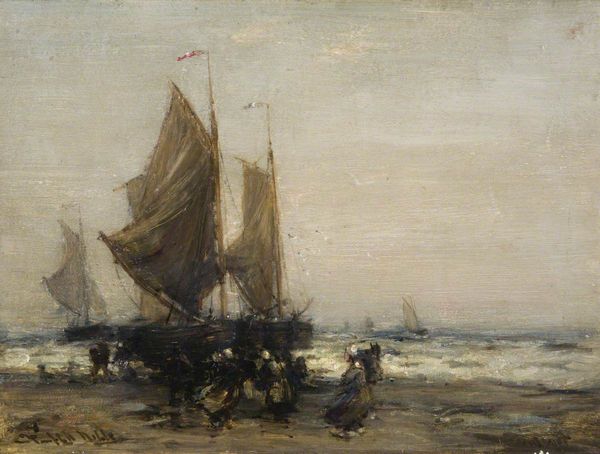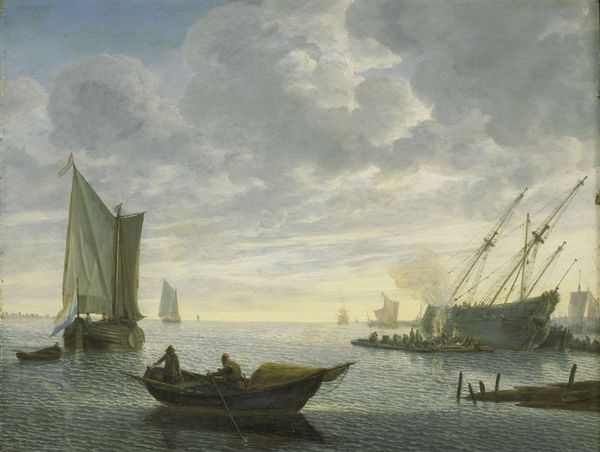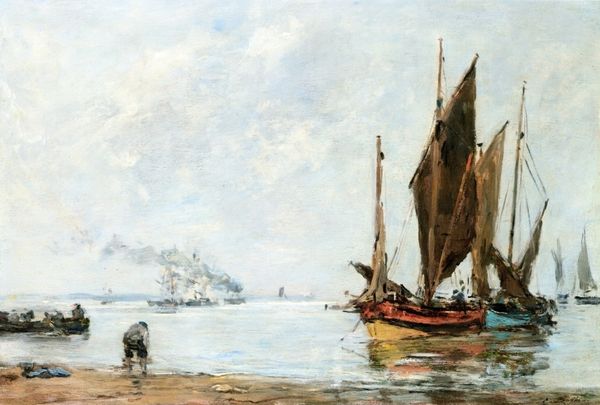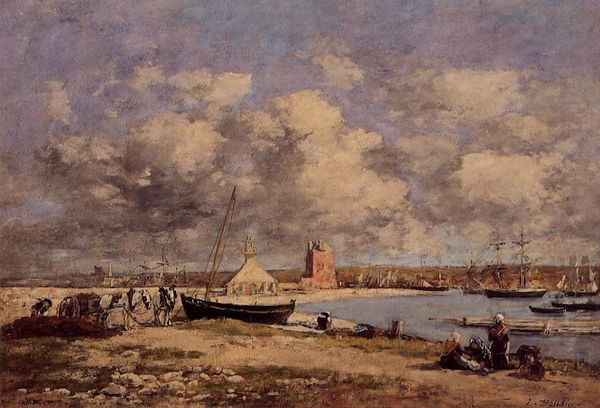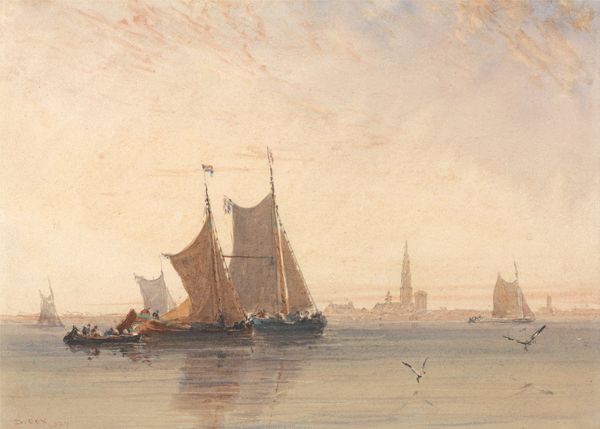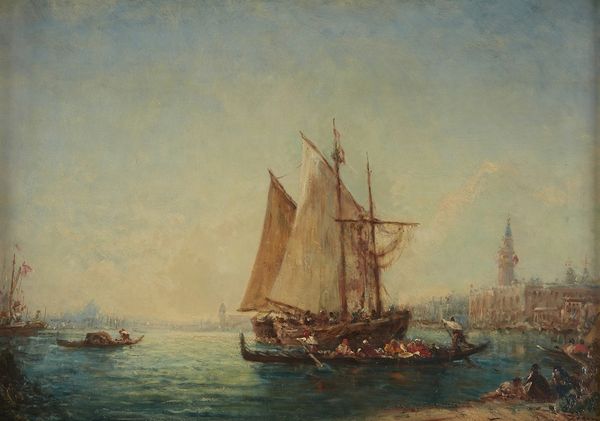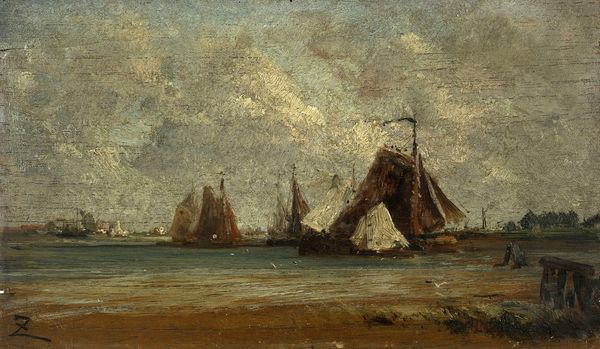
plein-air, watercolor
#
plein-air
#
landscape
#
oil painting
#
watercolor
#
romanticism
#
genre-painting
#
watercolor
Copyright: Public Domain: Artvee
Curator: This is Félix Ziem's "Fishermen and boats at water’s edge," dating from the 19th century. Immediately I notice the brushstrokes are rather delicate. Editor: Yes, a softness pervades the scene; the colours are gentle, almost muted. There's a dreamlike quality about it, a sense of nostalgia. How does the watercolor material contribute to that, do you think? Curator: Watercolour lends itself well to atmospheric scenes; it’s translucent qualities reflect the transient quality of water itself, and it does add to this almost ephemeral mood. Editor: It does give the sense of fleeting moments, yes, it really captures something romantic about daily life and labour here. Curator: Looking closely, there are figures on the shore repairing the boats, possibly unloading catch, mending nets - or perhaps getting ready for another trip. It's interesting how Ziem captures this working harbour in a way that is less about the mechanics of industry, but about the human experience within the fishing tradition. It has echoes of genre paintings in the Romantic style, almost staging a tableau of everyday life in a noble light. Editor: Indeed. It shows the labor required for survival, yet transforms it into something of sentimental value to viewers perhaps far removed from that labor. It raises an important question, who consumes and interprets such art? Are those depictions true to the reality of such lives or sanitized through a comfortable artistic lens? Curator: Perhaps. While there's romanticism and indeed the "noble savage" trope at play, I don’t sense blatant artifice here; Ziem perhaps sought to capture the innate dignity and inherent connection between people and the environment through those painterly means. Editor: That's a valuable perspective. I remain, nonetheless, thinking about the hands that constructed these boats. What knowledge, resources, and skill was required. Those material processes remain absent. Curator: We can but try to unpack them in our imaginations and connect, somehow, with these people from the past, even with just fragments. Editor: Absolutely. I think it's important to bear in mind these different perspectives, how history, social context and labor itself inform what we visually intake from such artworks. It is always a collaboration with time. Curator: An artistic dialogue across the centuries. A compelling discussion.
Comments
No comments
Be the first to comment and join the conversation on the ultimate creative platform.
